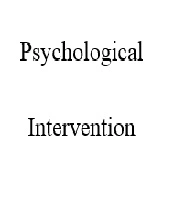1. Context
The novel coronavirus disease 2019 (COVID-19) pandemic has caused serious psychosocial impacts on individuals around the world (1). The rapid spread of this new and deadly virus of unknown origin mainly through close contact from person-to-person can lead to flu-like symptoms; however, patients’ conditions are unpredictable, and numerous psychological effects can be seen. The critical shortage of masks, gloves, and other personal protective equipment, along with low public trust in healthcare systems and stoppages in businesses, can be all assumed as the causes of these psychological problems and disorders (2). In the same way, like any other disease outbreaks threatening community health, COVID-19 has similarly created challenges for mental health service delivery systems (1). Accordingly, quarantine and isolation, as two measures taken to control this pandemic, can be associated with unpleasant experiences among individuals, including feelings of separation from loved ones, loss of freedom, uncertainty about disease conditions, anxiety, anger, and suicide attempts (3).
Psychological interventions in times of crisis refer to those mental or behavioral healthcare services that are rapidly applied, aimed primarily at stabilizing conditions and then moderating symptoms of dysfunction or inaccessibility of individuals to achieve a degree of compliance with new conditions and provide ongoing care solutions for emergency cases (4).
As reported, Iran is among the countries with the highest incidence rates of COVID-19 pandemic. The official report of the first death caused by COVID-19 in Iran was accordingly released on February 19, 2020 (5). Until March 2, 2020, the number of cases infected with COVID-19 has also reached 41,495 individuals. Up to the present time, more than 63 million individuals in Iran’s population have been screened during this pandemic (6). In this regard, Mazandaran Province has been also detected as one of the most affected provinces since the announcement of the virus spread. Given the above-mentioned psychological effects, the mental health status of the general public, infected people, and their families, and particularly, health staff has been of concern to Mazandaran University of Medical Sciences. Therefore, there is a need to develop programs to screen mental health disorders such as anxiety and depression in patients and their caregivers as well as healthcare providers and health staff along with the treatment of such conditions by a team of psychiatrists, psychologists, and other related medical groups (7).
The main goals outlined by Mazandaran University of Medical Sciences to provide psychological interventions are as follows:
1) Developing a shared language for managing preventive and treatment interventions and moderating psychological harm.
2) Aiding in the successful implementation of effective intervention programs.
3) Developing a scientific document for Mazandaran University of Medical Sciences with an emphasis on psychological interventions.
4) Facilitating and accelerating the fulfillment of the program goals through scientific and professional interactions and consultations.
5) Exploiting the latest achievements associated with crisis prevention and treatment interventions and mitigating crisis-induced psychological harm regarding international experiences for target groups.
6) Explaining the role and the importance of programs for the management of preventive and treatment interventions and minimizing crisis-induced psychological harm among university and community senior managers.
7) Presenting the results in the form of specialized teamwork as effective research work.
The prioritized target groups for psychological interventions at Mazandaran University of Medical Sciences include:
1) Hospitalized patients
2) Health staff
3) Patients with mild COVID-19
4) Healthcare providers
5) Patients’ families
6) Deceased individuals’ relatives
7) Healthcare services managers
8) General public
2. Technical and Executive Strategies
At first, with regard to technical and executive strategies, the formation of the crisis management task force was prioritized. The next step was to convey the strategies via correspondence with the university’s vice-chancellors, healthcare provider network administrators, and the province’s hospital chiefs. Correspondence was also made with organizations involved in psychological interventions. Besides, the provincial education committee held a meeting to teach crisis intervention teams. Afterward, leveled training packages with the content of crisis intervention and stress management were designed and prepared, which were then gradually distributed among the affiliated units. At the same time, experiences from other universities and countries were exploited. In addition, the planning process was completed, and cooperation agreements were negotiated for the national and provincial research. In the subsequent step, psychological intervention teams were virtually organized in healthcare provider networks, hospitals, teaching centers, and related schools. Consistently, there were interactions with other organizations such as the Islamic Republic of Iran Broadcasting (IRIB), the State Welfare Organization of Iran, and the Governor’s Office, as well as organizations, volunteered to participate in the given program.
3. Intervention Strategies and Control Measures
The telephone follow-up of positive cases of COVID-19 based on reports from the Integrated Health Record System (also called SIB System) was among the measures taken in this regard. The patients were additionally referred to a mental health expert for psychological training and empowerment. Telephone counseling with the family of the deceased as well as post-quarantine in-person counseling for psychological interventions for the grief treatment was further accessible. Additionally, telephone counseling was provided through 123, 1480, and 4030 as emergency services hotlines through a national system in cooperation with the State Welfare Organization of Iran. To this end, psychologists, psychiatrists, and some private centers volunteering to provide mental health services were connected to 4030. Mental health status assessment of healthcare providers and treatment staff was among the other measures taken. Stress management training was thus available for the treatment team. Likewise, there was the possibility of in-person counseling for healthcare providers and health staff. The reduction of working hours was further respected as a priority for health staff. It was correspondingly planned to minimize job burnout. Finally, a checklist was developed to monitor and evaluate the performance of experts and crisis intervention teams. Feedback was also set up and sent to the relevant units.
